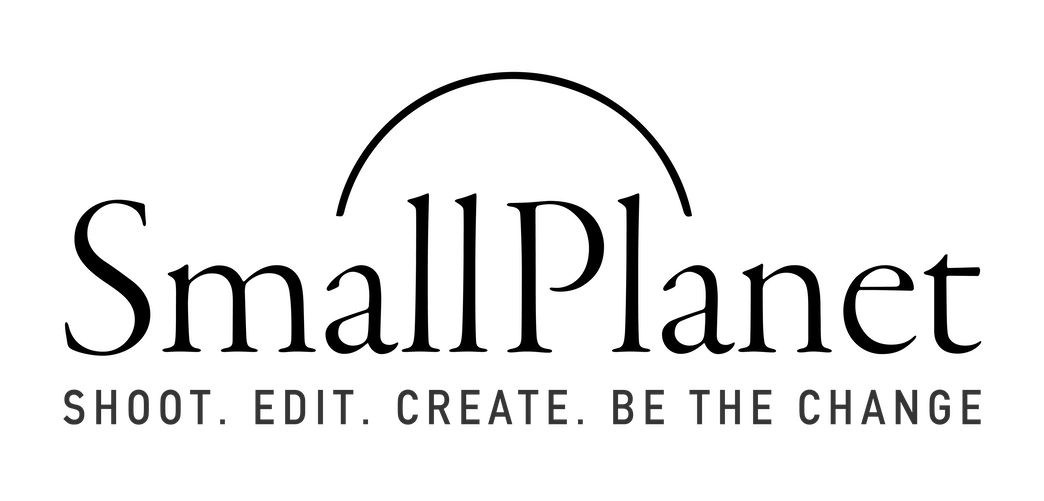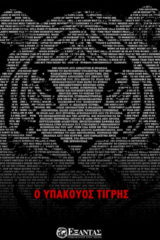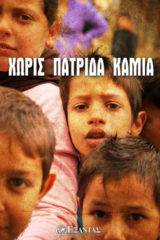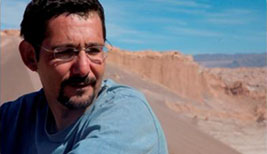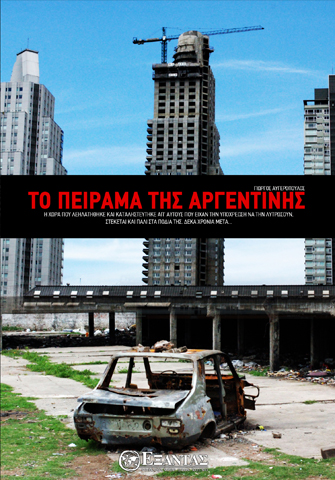
Το Πείραμα της Αργεντινής
Σκην: Γιώργος ΑυγερόπουλοςΤο Δεκέμβριο του 2001 στο Μπουένος Άιρες, μεγάλες λαϊκές μάζες κατευθύνονται προς την ιστορική πλατεία «Πλάσα δε Μάγιο.» Η Αργεντινή μία από τις πλουσιότερες οικονομίες στο παρελθόν, έχει χρεοκοπήσει. Η κυβέρνηση έχει παραιτηθεί και ο Πρόεδρος της Αργεντινής Φερνάντο Δε Λα Ρούα διαφεύγει από το Προεδρικό Μέγαρο με ελικόπτερο μέσα στη θύελλα του οργισμένου λαού που συγκρουόταν με την αστυνομία, έσπαγε τράπεζες, λεηλατούσε σούπερ μάρκετ και φώναζε μαζικά «Να φύγουν όλοι!». Η κοινωνική έκρηξη του 2001, ήταν το τέλος ενός νεοφιλελεύθερου οικονομικού μοντέλου διάρκειας 10 ετών και άφησε πίσω της 35 νεκρούς (δολοφονημένους από την αστυνομία και τους ιδιωτικούς φρουρούς των τραπεζών), 30.000 παράπλευρες απώλειες (ανθρώπους που αυτοκτόνησαν, η υπέστησαν καρδιακά και εγκεφαλικά επεισόδια), και περίπου 20.000.000 ανθρώπους (πάνω από το μισό του πληθυσμού) βουτηγμένους στην φτώχεια και τη μιζέρια.
Σχεδόν 10 χρόνια μετά, ο Γιώργος Αυγερόπουλος, που είχε εργαστεί στην Αργεντινή το 2001-2002 κατά την περίοδο της κρίσης, επιστρέφει για μια νέα αυτοψία στην οικονομία, την πολιτική και την κοινωνική κατάσταση της χώρας.
Δείτε την ταινία τώρα!
Επιλέξτε τη γλώσσα που επιθυμείτε και δείτε τώρα την ταινία σε Full HD από οποιαδήποτε συσκευή! Απολαύστε την ιδιωτική σας προβολή!
Αγοράστε το DVD
Δημόσια Προβολή
Σας ενδιαφέρει να οργανώστε μια δημόσια προβολή της ταινίας; Στείλτε μας ένα e-mail με το αίτημα σας και θα χαρούμε να σας βοηθήσουμε!
Εκπαιδευτική Χρήση
Σας ενδιαφέρει να εμπλουτίσετε τη βιβλιοθήκη του ιδρύματος σας με την ταινία μας; Επικοινωνήστε μαζί μας, ώστε μαζί να δημιουργήσουμε ένα πληροφορημένο κοινό!
- ΔΙΑΡΚΕΙΑ: 101min
- ΔΙΑΘΕΣΙΜΟ ΣΤΙΣ ΠΑΡΑΚΑΤΩ ΓΛΩΣΣΕΣ: Αγγλικά | Ισπανικά | Ελληνικά
- ΔΙΑΘΕΣΙΜΕΣ ΕΚΔΟΣΕΙΣ: Αγγλικά (101min) | Ισπανικά (101min) | Ελληνικά (101min)
- ΕΤΟΣ ΠΑΡΑΓΩΓΗΣ: 2010
- Επιτόπια Έρευνα, Σενάριο, Σκηνοθεσία: Γιώργος Αυγερόπουλος
- Διεύθυνση Φωτογραφίας: Γιάννης Αυγερόπουλος
- Διεύθυνση Παραγωγής: Αναστασία Σκουμπρή
- Έρευνα & Οργάνωση Θέματος: Μανώλης Φυλακτίδης
- Μουσική: Γιάννης Παξεβάνης
- Μοντάζ: Γιάννης Μπιλήρης, Άννα Πρόκου
PRODUCTION NOTES
«In the global system of rule profits are privatized and losses are socialized»
Eduardo Galeano, Writer
When Avgeropoulos parted from Argentina in 2002, he left the historic square of Mayo full of protesters and slogans. He now finds it in quite the same state, but for different reasons. Argentina’s former president, Nestor Kirchner, husband of current president, Cristina, has just died, struck down by a massive heart attack. His supporters, who make up the majority of the country’s electoral body, consider him a hero, the man who managed to pull Argentina out of the crisis and chased the IMF out of the country. «He gave us back our dignity.» «He was the one who freed us from the claws of this predatory beast!» are amongst the phrases pronounced by those gathered in the square. «And, since you come from Greece, which is going through hard times now, you must know that we already went through that. We were the prisoners of loan and accumulated debt. And those loans were not for us. They were not for the people. They are never for the people. That’s why the Greeks are right in protesting. It is sad not to learn, not to understand…»
Former economy minister Domingo Cavallo is considered by his adversaries to be the person mainly responsible for Argentina’s collapse in 2001. He is the man who designed and, for years, materialized the model upon which the country was based until the disaster.
Once amongst the most important political figures in Argentina, Doming Cavallo is today one of the most hated people in the country. He does not admit to having committed any mistakes. On the contrary: «Since I uprooted inflation and united Argentina with the rest of the world, since I allowed the modernization of Argentina’s productive infrastructure, I consider those to be great achievements and I do have a part in this success, not all of it, in this achievement».
Domingo Cavallo describes in detail everything that went on behind the closed doors of the meetings with the IMF in Washington and Buenos Aires.
«The IMF had already given a loan in an effort to help Argentina get out of the financial crisis that had already begun since mid-2000», he says. «This was clear to all. So it gave us a loan with three-month disbursements. The first trimester of this program had not been observed. So, I proposed to the IMF that we reprogram goals in a way that we would be able to achieve them».
Yorgos Avgeropoulos: How much was it?
Doming Cavallo: Not all that much. The overall IMF program was 12 billion dollars, and the quarterly payments were 1.3 billion dollars each. The quantities are insignificant compared to those of Greece. […] We had achieved our goals for the first trimester. Which had ended in September. Then they sent a committee to see if we had succeeded. We had, and they had to approve the next disbursement. Then they began to observe if we would achieve our goals for the 4th trimester. And, of course, we would have trouble achieving our goals for the 4th trimester. Just as you won’t be able to achieve your specific goals as programmed in Greece either. So, claiming that we would not be able to fulfill our goals for the 4th trimester, which had not yet been completed, they cancelled our November disbursement. And, since they retired their support, there was no other solution for us but to announce a debt standstill. […]
Those were the times when the theory of the ethics of danger prevailed, meaning that, when a country is in debt and there are banks and bond holders who have given out loans to this country, it is better for the country to go bankrupt; that way, the consequences will not be suffered only by the country itself, but also by its creditors. That will lead to a lesson for the future, so that the country will not be indebted again and its creditors will not give loans to a country in this condition. That is, they applied to us a theory which today, luckily, no one supports and which made us suffer greatly. It was not applied to Turkey, who was also undergoing crisis at that same time. But why was it not applied to Turkey? In the same year, 2001, Turkey was in great crisis, but it wasn’t pushed towards a debt standstill. And it wasn’t because Turkey was going to be used as a military base in the war against Iraq. Since Argentina could not be used as a base in any war, they said: «All right, this is a country that we can use as an example for the bad consequences of over-indebtedness.»
However, Doming Cavallo specifies that his critique against the IMF is not the same as the one displayed by the Left. «The IMF helped many countries; now, together with Europe, it is helping Greece», he says. «Unfortunately, the only country it didn’t help was Argentina».
«Observe how they behave, just like the Mafia», author Eduardo Galeano refutes. «They kidnap entire countries. They receive ransom but do not return the victims. The ransom is called ‘debt services’. They order the governments. They govern the governments. The International Monetary Fund is called ‘international’, but in fact it is ruled by 5 countries, they are the ones who make the decisions. Because the right to vote corresponds to the capital invested. So, those who have more money are those who command. They are five countries that rule the world. And then they speak of democracy. What democracy? It is five countries governing the rest».
Describing how and why he applied the famous corralito¸ seizing the citizen’s bank deposits, Cavallo fully defends his policy of selling off state property during the ’90s. «They were problematic businesses that were causing the State great losses. Through their privatization, we achieved two things. On the one hand, the deficit disappeared and, on the other, the State no longer had to invest in these areas and the private sector did it instead. This way, all public services were modernized».
However, Aldo Ferrer, one of the country’s most renowned and reliable economists and the ambassador of Argentina in France, describes a very different scenery. «It was a policy of wildly selling-off our national heritage. Especially petroleum! Argentina was the only country to sell its national oil company. Everything was sold! Telephone, telecommunications and so many others were sold. The money was used to pay the debt, but the debt continued to increase. So, in the end of that period, after our national heritage had been sold, we were worse off than at the beginning. It was a terrible policy! A policy completely inspired by the ‘magic’ of the Market, according to which one must open up, sell, get the State out of the way and let the Market’s spontaneous forces lead the country to progress, in a setting of international speculation. And the result was disaster.»
Today, almost 10 years later, many of the depositors whose money was blocked by the banks have not managed to get their money back. Despite the decisions of the Supreme Court, determining that the banks ought to return the money to the people in the initial currency, plus the interests that had been held back for all those years, the banks stonewall with legal tricks. However, they are charging interests to the borrowers who received a loan just before the crisis. They speak of usury. Approximately 2,000,000 mortgage debtors are in danger of losing their homes.
Many committed suicide, not being able to bear their financial collapse. Others pay frequent visits to their psychiatrist. Dr. Tarragano, and many of his colleagues in the psychiatric clinic, conducted a three-year research on the cases they treat every day. They discovered that the percentage of those who suffered heart and brain attacks as a result of the stress caused by the crisis shot up at 15%, while the world average is but 2%.
At one of its hardest moments in history, with half the population submerged in poverty and misery, with an absent State and no money on the streets, the society showed it had reflexes and internal forces. People became self-organized and began to exchange goods and services. That is how the trueque (barter) appeared, a pre-capitalist type of commerce, which ensured the survival of 10,000,000 people. People would gather in specific places and exchange products: second-hand clothes for a kilo of meat. «The exchange market not only provided food, it gave us to drink, and also supplied us with cardiologists and teachers for our children, for English and dance classes. We had notaries who wrote out legal documents for houses and plots of land and were paid with coupons, or houses being sold and bought with coupons, which were used as money. We had tourism, manicure, hairdressers and pedicure, there was a casino, all that with coupons from the exchange market», says Graciela Graguisevich, a founding member of the trueque. «It was like a celebration, there were shifts, people would sing and no one would be upset, because they were able to eat or dress themselves, it was amazing! Not to depend on banks, on super markets, on the economy minister, on the IMF. The truth is we lived a period of great freedom».
The trueque spread all over the country, to the extent that the local economic spheres, as well as the IMF itself, discredited it and called for its dissolution, while a US senator called it financial terrorism.
«This study of the market through a micro-market makes people perform a huge leap as to how they consider the economy», says Ruben Ravera, co-founder of the Club Trueque. «And that, we know, is very dangerous. It’s very dangerous for people to apply a method which allows them to be independent. To determine their own destiny».
The beginning of the end commenced when the police paid their first «visit» to the biggest space of trueque, in order to perform controls. At the same time, the mainstream media began to report that the products of the trueque were stolen or that the food came from the rubbish. However, not even that was capable of stopping the trueque. What did manage to stop it were the tens of counterfeit coupons (which constituted the medium of exchange) introduced by unknown forgers to the exchange market. The founding members of the trueque still believe that it was an organized plot. Reports of those days show the police arresting criminals who were carrying a million forged coupons. When asked by a reporter if that could have been an improvised action, the answer given was that such a production demanded big-scale machinery.
The trueque continues in Buenos Aires until today. In spaces that keep a low profile and with no publicity, so as to not be targeted by the authorities.

